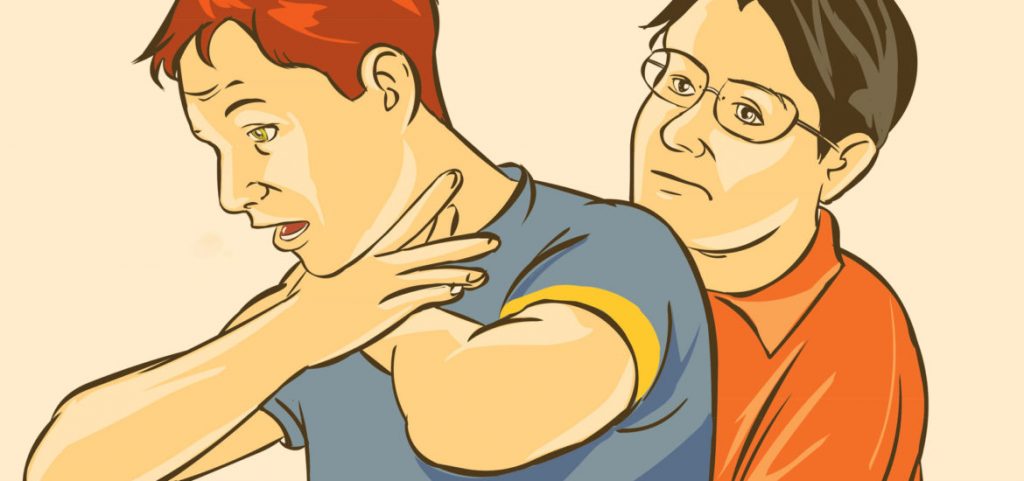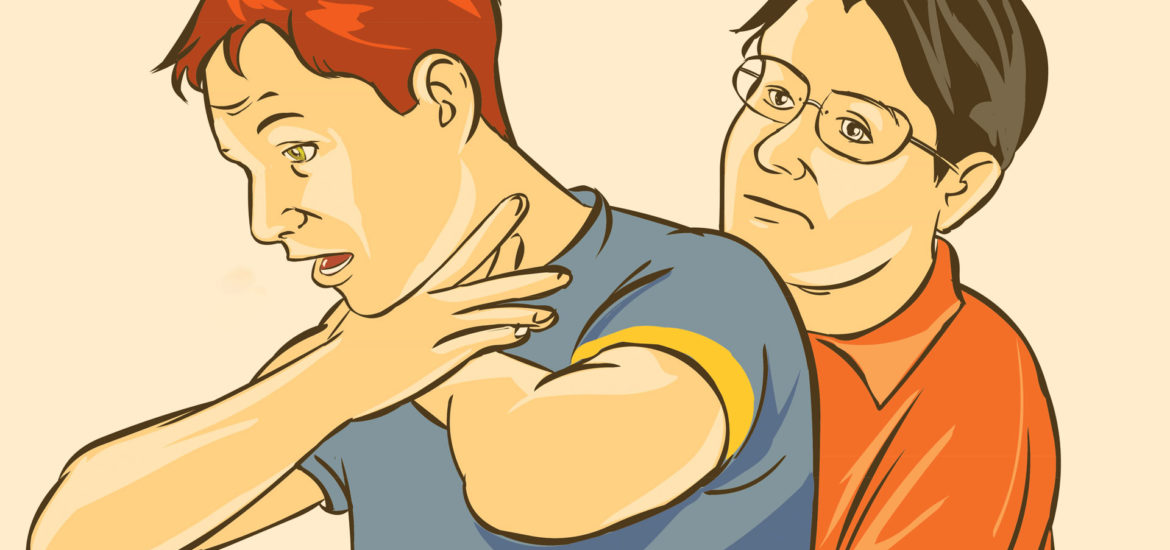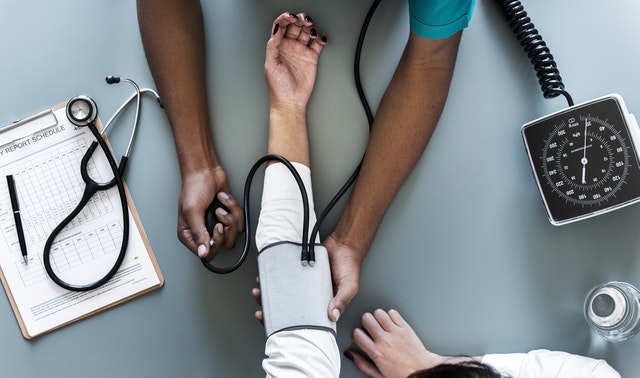Choking

Choking is a blockage of the upper airway/throat by food or other objects, which prevents a person from breathing effectively. Choking can cause a simple coughing fit, but complete blockage of the airway may lead to death.
Choking is a true medical emergency that requires fast, appropriate action by anyone available. Emergency medical teams may not arrive in time to save a choking person’s life.
In adults, choking most often occurs when food is not chewed properly. Talking or laughing while eating may cause a piece of food to “go down the wrong pipe.” Normal swallowing mechanisms may be slowed if a person has been drinking alcohol or taking drugs, and if the person has certain illnesses such as Parkinson’s disease.
Choking Symptoms
If an adult is choking, you may observe the following behaviours:
- Coughing or gagging
- Hand signals and panic (sometimes pointing to the throat)
- Sudden inability to talk
- Clutching the throat: The natural response to choking is to grab the throat with one or both hands. This is the universal choking sign and a way of telling people around you that you are choking.
- Wheezing
- Passing out
- Turning blue: Cyanosis, a blue colouring to the skin, can be seen earliest around the face, lips, and fingernail beds. You may see this, but other critical choking signs would appear first.
- If an infant is choking, more attention must be paid to an infant’s behaviour. They cannot be taught the universal choking sign.
- Difficulty breathing
- Weak cry, weak cough, or both
How to help someone who is choking?
Do not hesitate to call for emergency help if you believe a person is choking. Do not attempt to drive a choking person to a hospital emergency department.
What to do if a person is choking:
- It is best not to do anything if the person is coughing forcefully and not turning a bluish colour. Ask, “Are you choking?” If the person is able to answer you by speaking, it is a partial airway obstruction. Stay with the person and encourage him or her to cough until the obstruction is cleared.
- Do not give the person anything to drink because fluids may take up space needed for the passage of air
- If the material is not yet removed, then follow Heimlich manever.
Heimlich maneuver steps
- Comfort the victim. A person will start to panic when they are choking. Go to the victim and reassure them that you know the Heimlich manure and begin assistance. Let the sufferer know that he must remain calm, and should follow your instructions. Then get working!!
- Have the choking victim stand. For the Heimlich maneuver to work successfully, the choking victim must be up on their feet. If the victim is unstable or panicking you can help support them
- Get behind the person who is choking. For the next phase of the Heimlich maneuver you need to put yourself in the right position. Get behind the person who is choking.
- Carefully hug the choking victim. Place your hands around the victim’s chest when you are standing behind the victim. The victim’s arms should be up and away from yours. You have to get a good hold on the person’s trunk.
- Close your hand in a fist. As you are hugging from behind, put your hand exactly in the middle of the person’s chest in the form of a fist. Do not tuck your thumb into your hand; it needs to be on the outside, pointed up. Place your fist above the area of the navel (belly button). There is no time to be modest and it may be required that any heavy clothing worn by the victim be removed to find the proper first placement. Whatever needs to be done in order to keep the victim from choking to death must be done.
- Take a hold of your fist. Create the perfect circle when you grab your fist with your free hand. Do not release your grip on your fist.
- Begin to thrust. Hold your arms closely; with the one hand still closed tight, push inward and up in one motion. You need to thrust hard on the victim’s abdomen. To dislodge the object blocking the victim’s airways, do the strong fisted thrust five times squeezing stronger each time. A firm thrust will also bring air from the person’s airways, making them cough. To do it right, you have to go deep, although it may hurt the victim. Don’t let this worry you! He will always be thankful for your forceful methods when he can breathe once again. Keep doing this until the item they were choking on is expelled.
Through out the Heimlich maneuver, it is vital to keep a good hold of the victim in case becomes unconscious. If the maneuver is successful, sit the victim down again and don’t leave him until his breathing gets back to normal.
To read more on First Aid, click on the link below.




